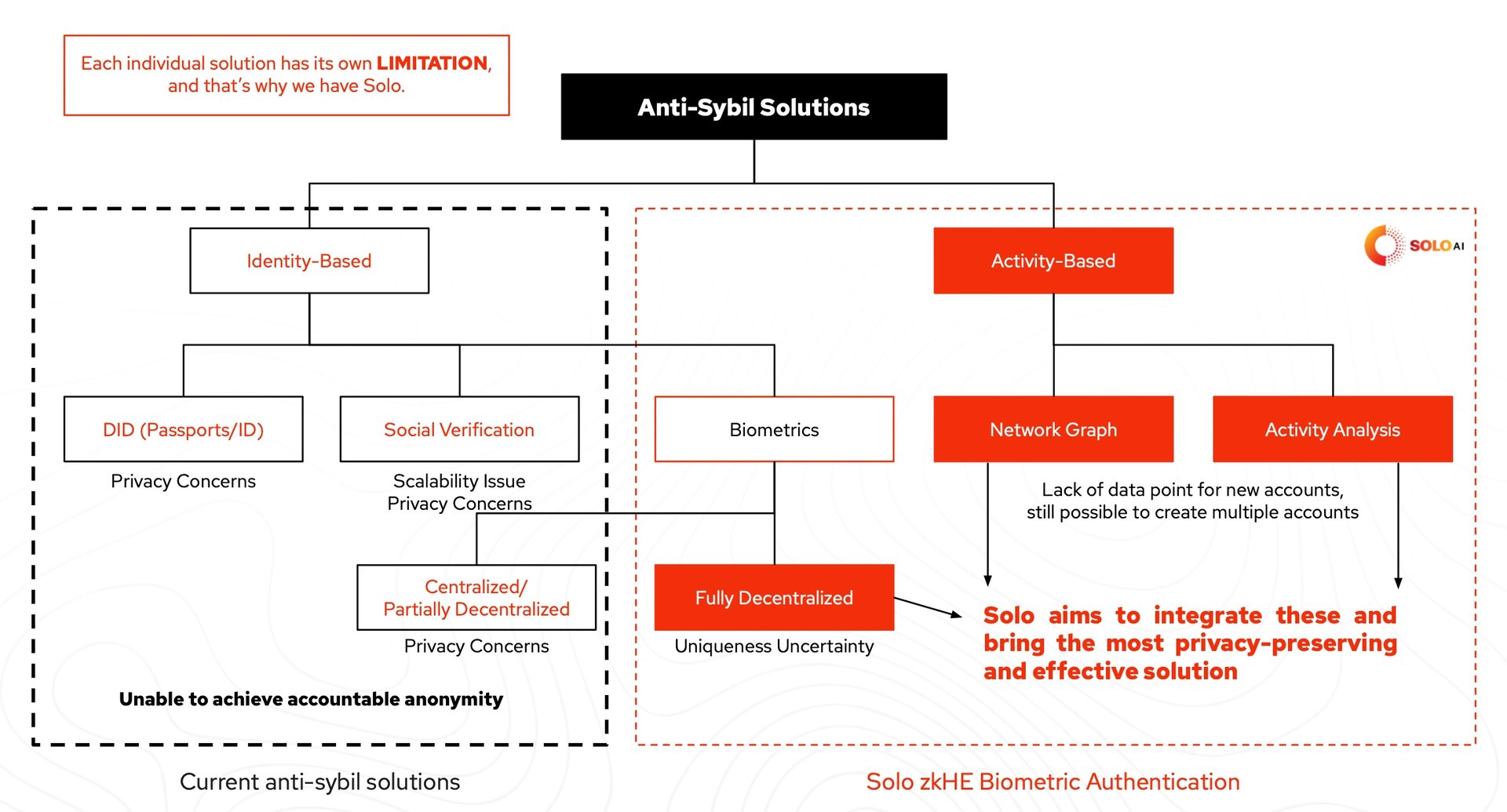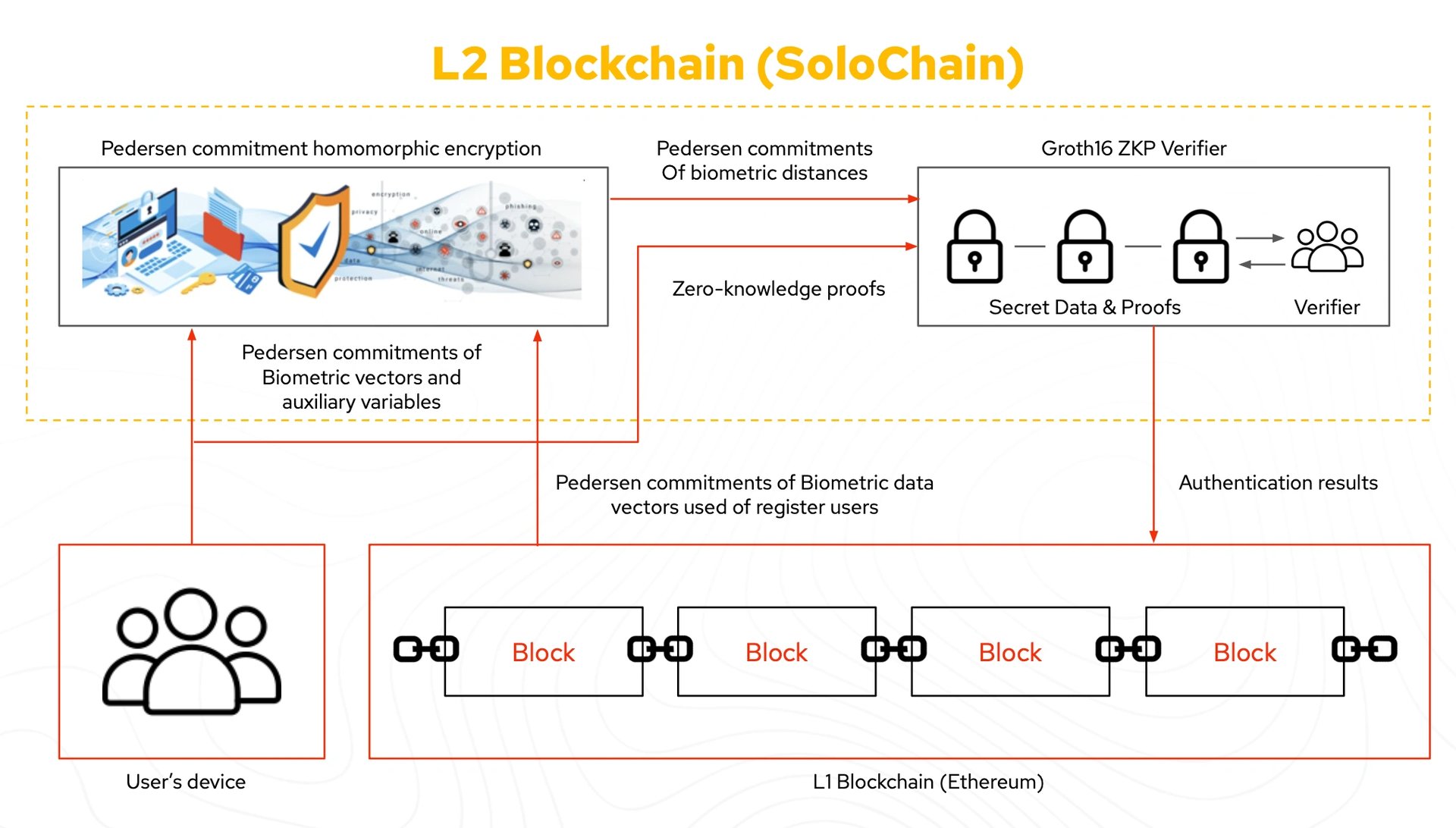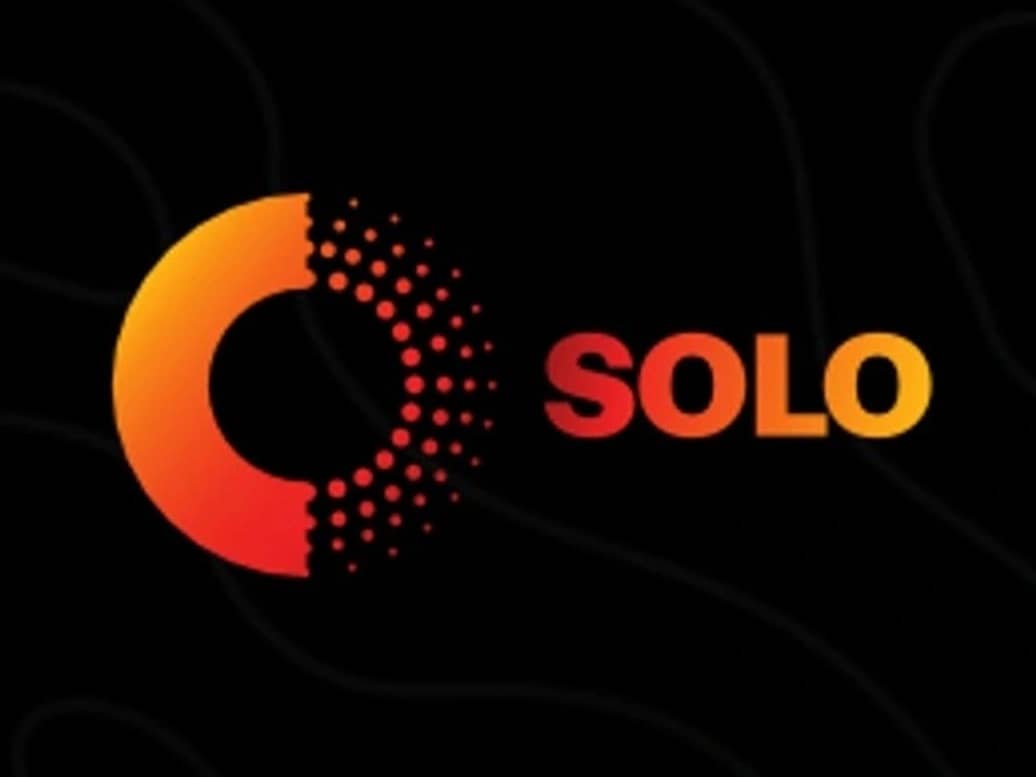订阅 wiki
Share wiki
Bookmark
Solo
0%
Solo
Solo 旨在通过持续验证用户在与去中心化应用程序 (dApps)交互时是真人来增强 Sybil 抵抗能力。这种方法旨在消除机器人干扰和 AI 污染,从而提高数字交互的完整性。[1]

概述
Solo 旨在通过持续的、去中心化的生物特征验证来提高 Sybil 抵抗能力。它利用一人一账户 (1P1A) 框架,力求确保真实的用户参与并最大限度地减少数据暴露。
Solo 旨在通过 zkHE 生物识别系统验证与 去中心化应用程序 (dApps) 交互的真人,从而消除机器人干扰和 AI 污染,在隐私和准确性之间取得平衡。
对于用户而言,Solo 提供无缝验证、增强的隐私和可问责的匿名性。对于项目而言,它旨在防止机器人和虚假账户,确保高质量数据,并在 dApp 使用期间提供持续验证。[1]
持续验证
Solo 的持续验证系统旨在通过要求定期重新验证和自动注销来确保 dApp 用户是真人。它支持所有移动设备,并力求避免虹膜扫描等硬件限制。
对于 Web3 游戏,该系统旨在防止作弊并支持公平竞争。在数据标记中,它旨在确认任务由人类完成,从而保持 AI 模型的完整性。[1]

产品
SoloChain
SoloChain 是一个 Layer-2 解决方案,旨在通过使用基于 Pedersen 承诺的同态加密和 Groth 16 零知识证明 来增强隐私。它旨在安全地管理和验证生物特征数据,包括生物特征距离和向量。SoloChain 在 以太坊 等 Layer-1 区块链 之上运行,力求提高处理敏感数据和证明的隐私性和效率。[1]

架构
ZKHE 验证
Solo 的平台依赖于 zkHE 验证架构,由 SoloChain(一个以隐私为中心的 Layer-2 解决方案)支持。该系统使用 Pedersen 承诺同态加密、零知识证明 和 AI 分析,以在任何移动设备上实现对真实用户的持续验证,旨在平衡可扩展性和隐私性。[1]
Groth 616 zk-SNARK ZKP
Groth 16 zk-SNARK ZKP 旨在验证 区块链 交易,同时保持用户数据的私密性。它使用递归 ZKP,将基于 Pedersen 承诺的同态加密与 Groth 16 zk-SNARK 相结合,以最大限度地减少加密计算期间的区块链开销。这种方法力求保持数据隐私并确认计算完整性,而无需披露详细信息。[1]
基于 Pedersen 承诺的同态加密
基于 Pedersen 承诺的同态加密旨在通过在整个验证过程中保持生物特征数据的加密来确保数据机密性,从而在计算过程中保护个人信息。它还力求通过规范化生物特征数据格式来减少链下计算需求,从而简化 ZKP 电路设计。[1]
FIDO
FIDO 是生物特征验证和密码密钥管理的国际标准。它旨在通过使用生物特征和密码方法代替传统密码来促进无密码身份验证。[1]
团队
- Edison Siu: CEO
- Stephen Wang 教授: zk-SNARK 和密码学研究员
- Sissi Wu 教授: AI 和数据科学研究员[1]
发现错误了吗?
